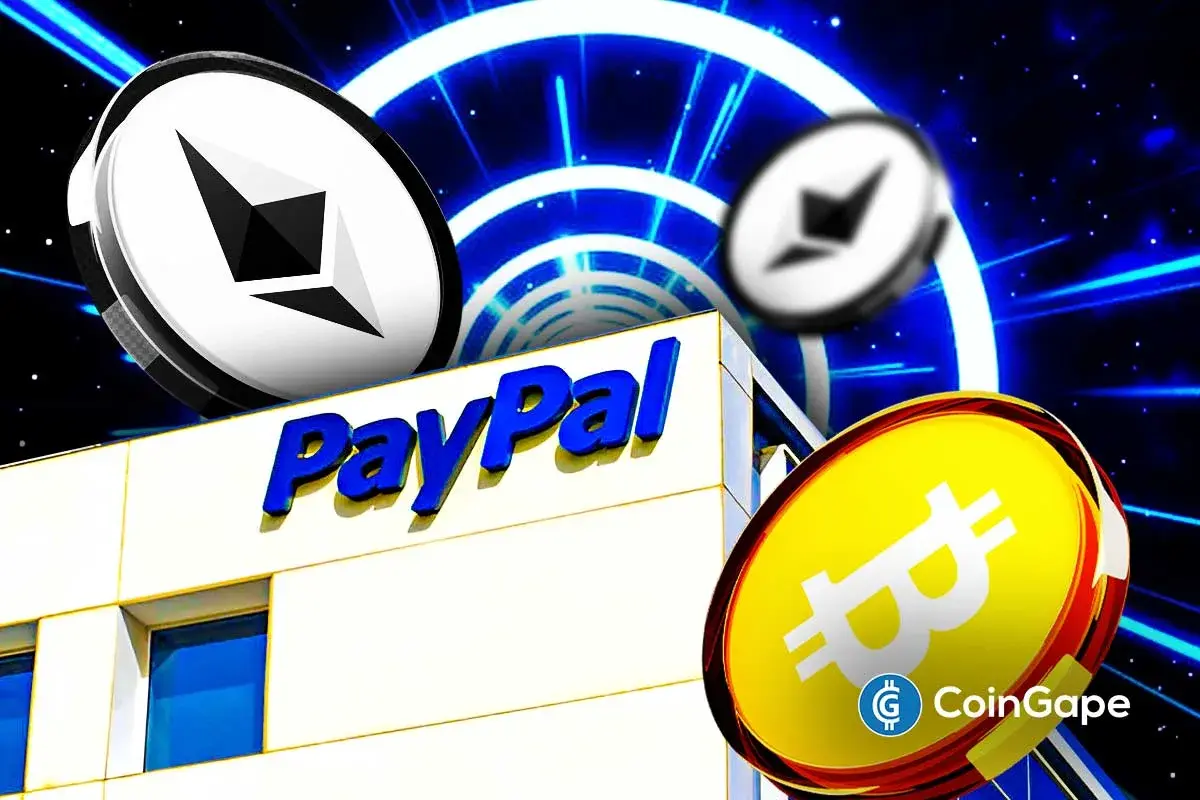PayPal’s PYUSD Introduces Interest Rewards With Anchorage Bank Partnership

Highlights
- PayPal's PYUSD gains traction with an interest rewards program for institutional investors via Anchorage Digital.
- PYUSD expands to Solana, boosting transaction speed and global merchant reach, challenging Tether and USDC.
- Xoom adds PYUSD for fee-free global transfers, expanding PayPal’s stablecoin utility in 160+ countries.
PayPal is advancing its stablecoin initiative by introducing an interest rewards program for holders of its dollar-pegged PYUSD stablecoin. This program, in partnership with Anchorage Digital, signals the next step in PayPal’s campaign to expand the use of its stablecoin.
PayPal PYUSD Introduces Interest Rewards With Anchorage Bank
Anchorage Digital, a U.S. crypto firm with a bank charter, and PayPal are collaborating to offer PYUSD holders interest rewards. This move is intended to promote the use of PYUSD, which has been slow to gain market share since its introduction.
Although it has been received warmly in the market, the firm’s stablecoinhas a low market capitalization of less than $1 billion as of now, compared with giants such as Tether, which has a market capitalization of over $117 billion.
The program incentivises accredited investors who hold PYUSD through Anchorage Digital’s bank, its Singapore-based entity, or the non-custodial wallet Porto. The rewards will be derived from the interest earned from the underlying assets backing it, especially the US Treasuries, and will not be treated as a marketing expense.
Regulatory Uncertainty and Legal Position
The launch of this Paypal rewards program coincides with the continued legal gray area for stablecoins in the US. The SEC has previously characterized certain stablecoins as securities, but federal courts have not consistently agreed with this assessment.
According to the company, Anchorage Digital’s rewards program is not a securities offering because it is only limited to institutional investors.
In addition, the rewards program is designed to be outside the purview of the U. S. banking regulators. The company has set up a Cayman Islands-based entity called Anchorage Digital Neo to facilitate the payouts, explaining that this does not fall under the purview of regulators in the Cayman Islands or any other jurisdiction.
Expansion on the Solana Network
Concurrently, in May, the company extended the use of its stablecoin by incorporating it into the Solana network, its first move outside the Ethereum network. This integration enables PayPal to utilize the Solana network for cheaper and faster transactions, possibly serving millions of merchants worldwide. This strategic decision aims to increase the use for regular transactions as it competes with other stablecoins such as Tether and USD Coin.
Moreover, PayPal’s cross-border transfer service, Xoom, has added PYUSD as a funding option for U.S. customers. This new feature allows fee-free international transfers in the stablecoin to recipients in over 160 countries.
The stablecoin industry is also expanding, with opponents like Mercado Pago developing their own stablecoins. According to a report from CoinGape, another stablecoin, MELI Dollar in Brazil, is designed to help users use a stable currency even in turbulent economic conditions.
- XRP Tops BTC, ETH in Institutional Flows As Standard Chartered Lowers 2026 Forecasts
- Bitcoin vs. Gold: Expert Predicts BTC’s Underperformance as Options Traders Price in $20K Gold Target
- CLARITY Act: White House to Hold Another Meeting as Crypto and Banks Stall on Stablecoin Yield Deal
- Bitcoin as ‘Neutral Global Collateral’? Expert Reveals How BTC Price Could Reach $50M
- XRP Ledger Validator Spotlights Upcoming Privacy Upgrade as Binance’s CZ Pushes for Crypto Privacy
- Dogecoin, Shiba Inu, Pepe Coin Price Predictions As BTC Crashes Below $68k
- Ethereum Price Outlook as Harvard Shifts Focus from Bitcoin to ETH ETF
- HOOD and COIN Stock Price Forecast as Expert Predicts Bitcoin Price Crash to $10k
- XRP Price Prediction Ahead of Supreme Court Trump Tariff Ruling
- Crypto Price Prediction For This Week: Dogecoin, Solana and Cardano
- Bitcoin Price Prediction: How Could Brazil’s Strategic Bitcoin Reserve Proposal Impact BTC?

















